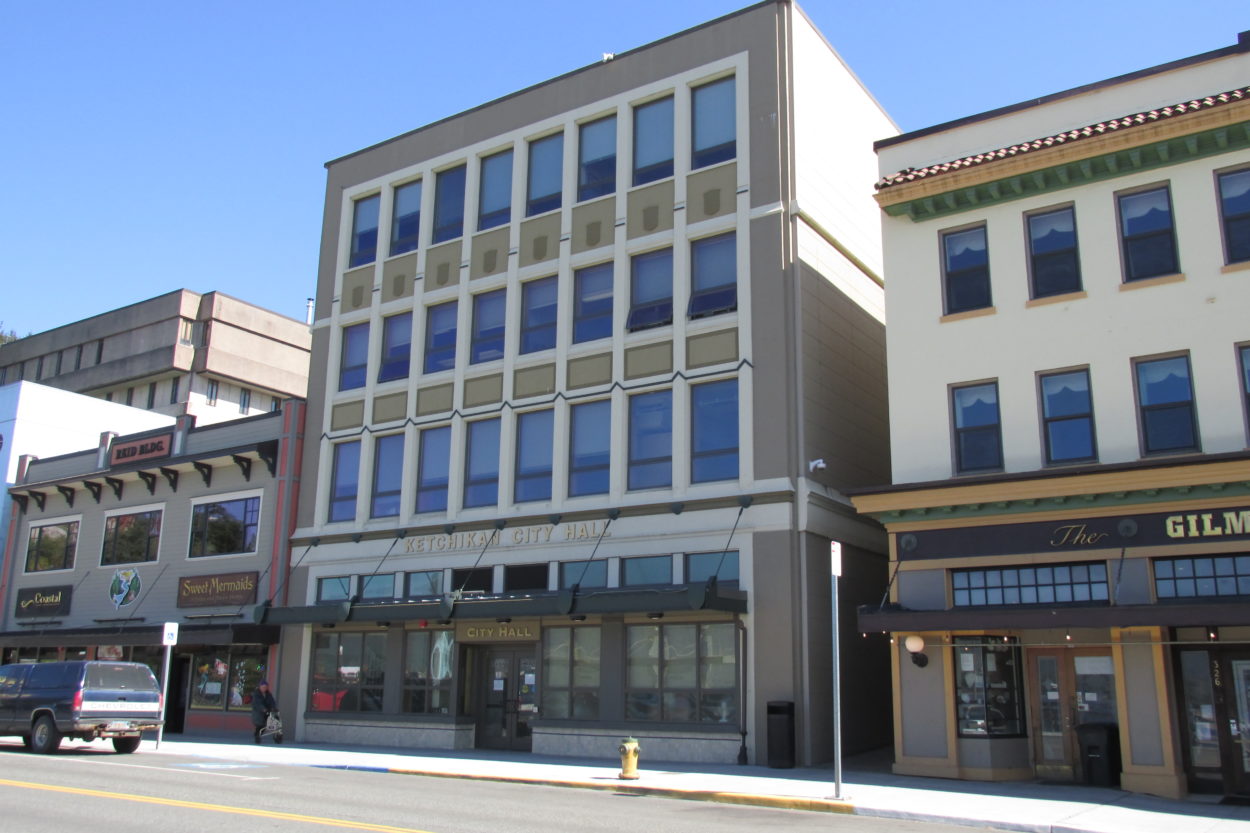Ketchikan’s City Council voted down a proposed property tax hike Thursday.
The city’s finance department had proposed an increase of 0.1 mills, or 10 cents per $1,000 of assessed value. The city’s finance director said the hike was necessary to make up for a slight decline in the city’s property tax base. That decline stems from an increase in the number of property owners claiming an exemption for seniors 65 and older.
The proposal would have raised annual taxes on a $300,000 home by $30. But with the city’s tourism industry just sputtering back to life after a devastating 2020, Ketchikan resident Lewis Amundson says many people in town don’t have a dollar to spare.
“So when you guys take into consideration raising these millage rates, think about the people that can’t afford that,” Amundson told the council at its Thursday meeting. “It seems like a small fraction for some of you, but it’s a huge piece for others.”
That seemed to resonate with Council Member Abby Bradberry.
“We’re saying, ‘Oh, it’s just another $30.’ We’re adding this on in the time of a crisis. A lot of people still are out of work, a lot of people are trying to make ends meet,” Bradberry said.
A majority quickly coalesced around keeping taxes flat, with council members Riley Gass, Sam Bergeron and Janalee Gage each saying they opposed the hike.
“I can’t argue against it. I understand your rationale. But I want to give you some perspective,” said City Manager Karl Amylon.
He reminded the council that in 2019, with healthy revenues from cruise ship passengers, the city voted to raise employees’ wages after a study found city workers were underpaid compared to their private-sector counterparts. That was supposed to be financed by a property tax increase of half a mill — 50 cents per $1,000 — in 2020. But on Amylon’s recommendation, the council put off the tax hike last year as the bottom fell out of the tourism economy. This year’s proposal punted the tax increase further, to at least 2022.
Amylon told the council that revenues would take a long time to get back to 2019 levels — especially with an estimated quarter of Ketchikan’s cruise ship traffic set to call on a new privately-owned dock outside of city limits. The pandemic has wreaked havoc on the city’s budget reserves, and Amylon said one day soon, the council may be forced to raise taxes significantly just to make ends meet.
“You’ve got to be very careful not to dig yourself a hole,” he said.
The council voted unanimously to keep tax rates flat for this year.
In other business, a proposal to extend the city’s COVID-19 emergency declaration through August 1 failed to secure the supermajority necessary to pass. It’s currently set to expire at the beginning of next month.
The emergency declaration gives the city manager broad authority to use city resources to respond to the pandemic. It also allows the council to meet by videoconference, or in person somewhere other than the City Council chambers. (The council unanimously passed in first reading a measure to allow for in-person meetings outside City Hall at Thursday’s meeting even without an emergency declaration, but the soonest it could come into effect is mid-July, after the declaration expires.)
The extension failed 4-2, falling short of the five-vote threshold necessary for emergency ordinances. Gass voted against the extension.
“I don’t think we’re in a state of emergency right now for COVID,” Gass said. Bradberry joined Gass in opposition.
Council Member Dave Kiffer was absent. Bergeron said he’d bring a proposal to extend the emergency declaration back at the council’s next meeting.






